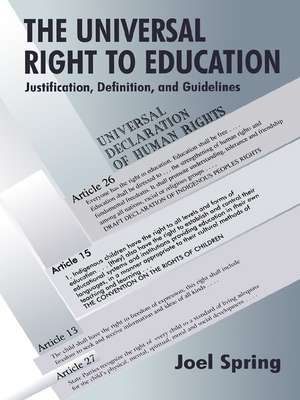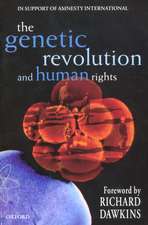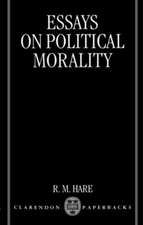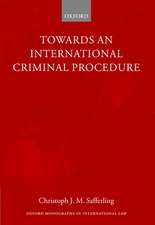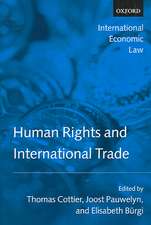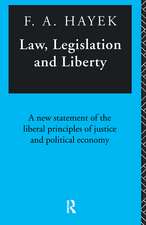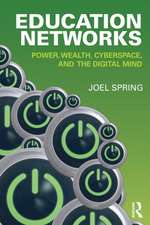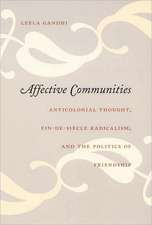The Universal Right to Education: Justification, Definition, and Guidelines: Sociocultural, Political, and Historical Studies in Education
Autor Joel Springen Limba Engleză Paperback – mar 2000
One sixth of the world's population, nearly 855 million people, are functionally illiterate, and 130 million children in developing countries are without access to basic education. Spring argues that in our crowded global economy, educational deprivation has dire consequences for human welfare. Such deprivation diminishes political power. Education is essential for providing citizens with the tools for resisting totalitarian and repressive governments and economic exploitation. What is to be done? The historically grounded, highly original analysis and proposals Spring sets forth in this book go a long way toward answering this urgent question.
Spring first looks at the debates leading up to the Universal Declaration of Human Rights in 1948, to see how the various writers dealt with the issue of cultural differences. These discussions provide a framework for examining the problem of reconciling cultural differences with universal concepts. He next expands on the issue of education and cultural differences by proposing a justification for education that is applicable to indigenous peoples and minority cultures and languages. This justification is then applied to all people within the current global economy. Acknowledging that the right to an education is inseparable from children's rights, he uses the concept of a universal right to education to justify children's rights, and, in turn, applies his definition of children's liberty rights to the concept of education. His synthesis of cultural, language, and children's rights provides the basis for a universal justification and definition for the right to education -- which, in the concluding chapters, Spring uses to propose universal guidelines for human rights education, and instruction in literacy, numeracy, cultural centeredness, and moral economy.
Din seria Sociocultural, Political, and Historical Studies in Education
-
 Preț: 268.53 lei
Preț: 268.53 lei -
 Preț: 370.47 lei
Preț: 370.47 lei - 8%
 Preț: 376.19 lei
Preț: 376.19 lei -
 Preț: 347.45 lei
Preț: 347.45 lei -
 Preț: 453.89 lei
Preț: 453.89 lei -
 Preț: 447.14 lei
Preț: 447.14 lei -
 Preț: 431.95 lei
Preț: 431.95 lei - 18%
 Preț: 1001.90 lei
Preț: 1001.90 lei -
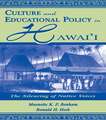 Preț: 455.84 lei
Preț: 455.84 lei -
 Preț: 303.63 lei
Preț: 303.63 lei -
 Preț: 484.04 lei
Preț: 484.04 lei -
 Preț: 452.91 lei
Preț: 452.91 lei -
 Preț: 477.56 lei
Preț: 477.56 lei -
 Preț: 392.50 lei
Preț: 392.50 lei - 18%
 Preț: 1000.30 lei
Preț: 1000.30 lei -
 Preț: 360.30 lei
Preț: 360.30 lei - 15%
 Preț: 682.06 lei
Preț: 682.06 lei -
 Preț: 395.93 lei
Preț: 395.93 lei -
 Preț: 470.43 lei
Preț: 470.43 lei -
 Preț: 395.63 lei
Preț: 395.63 lei -
 Preț: 437.71 lei
Preț: 437.71 lei -
 Preț: 448.12 lei
Preț: 448.12 lei - 18%
 Preț: 1111.58 lei
Preț: 1111.58 lei - 18%
 Preț: 954.50 lei
Preț: 954.50 lei -
 Preț: 476.60 lei
Preț: 476.60 lei - 18%
 Preț: 1000.27 lei
Preț: 1000.27 lei - 18%
 Preț: 999.98 lei
Preț: 999.98 lei - 18%
 Preț: 1057.75 lei
Preț: 1057.75 lei -
 Preț: 304.73 lei
Preț: 304.73 lei - 25%
 Preț: 260.73 lei
Preț: 260.73 lei - 26%
 Preț: 872.70 lei
Preț: 872.70 lei - 18%
 Preț: 1109.99 lei
Preț: 1109.99 lei -
 Preț: 383.75 lei
Preț: 383.75 lei -
 Preț: 387.49 lei
Preț: 387.49 lei -
 Preț: 403.65 lei
Preț: 403.65 lei - 15%
 Preț: 565.78 lei
Preț: 565.78 lei
Preț: 258.30 lei
Preț vechi: 348.22 lei
-26% Nou
Puncte Express: 387
Preț estimativ în valută:
49.43€ • 52.85$ • 41.21£
49.43€ • 52.85$ • 41.21£
Carte tipărită la comandă
Livrare economică 18 aprilie-02 mai
Preluare comenzi: 021 569.72.76
Specificații
ISBN-13: 9780805835489
ISBN-10: 0805835482
Pagini: 202
Dimensiuni: 152 x 229 x 13 mm
Greutate: 0.37 kg
Ediția:1
Editura: Taylor & Francis
Colecția Routledge
Seria Sociocultural, Political, and Historical Studies in Education
Locul publicării:Oxford, United Kingdom
ISBN-10: 0805835482
Pagini: 202
Dimensiuni: 152 x 229 x 13 mm
Greutate: 0.37 kg
Ediția:1
Editura: Taylor & Francis
Colecția Routledge
Seria Sociocultural, Political, and Historical Studies in Education
Locul publicării:Oxford, United Kingdom
Public țintă
ProfessionalCuprins
Contents: Preface. Justifying Human and Educational Rights. Justifying a Universal Right to Education for Indigenous and Minority Cultures. The Right to Education in a Global Culture and Economy. Universal Justification for Education and Children's Rights. A Universal Concept of Education: Human Rights Education and Moral Duties. A Universal Concept of Education: Guidelines for Literacy and Numeracy Instruction. Mediating the Effects of World Culture and Economy. Summary: The Universal Right to Education.
Recenzii
"Joel Spring's examination of education as a universal human right provides excellent historical background and information on recent international agreements affecting this right, as well as original contributions of justification, definitions, and guidelines for its implementation....the author's guidelines provide springboards for discussion in teacher education and among teachers in the field..."
—Comparative Education Review
"Timely, incredibly significant...fills a huge gap in the current educational literature. The focus on children's rights, broadly conceived, is both important and valuable....There are simply no comparable works available."
—Timothy Reagan
University of Connecticut
"This is a very important book. There is nothing like it in the field. It is more than timely--it is an urgent book, long overdue....What makes it so compelling is that the questions it poses are ones that are being hotly contested today in educational literature. Are there universal rights? Should education have a social justice agenda? Given the neoliberal agenda faced by both developed and developing countries throughout the world, the issues set forth for analysis could not be more pertinent at this time. Of course, there is another reason too why a book like this is so urgent--it deals with crucial issues that intersect current debates around class, race, gender, and sexuality....This book is exceedingly well grounded in current theory and research and contributes significantly to a cluster of intersecting fields, from sociology of education, to curriculum theory, to philosophy of education, to the politics of education....Its controversial approach will provoke wide public debate."
—Peter McLaren
University of California at Los Angeles; author, Che Guevara, Paulo Freire, a
—Comparative Education Review
"Timely, incredibly significant...fills a huge gap in the current educational literature. The focus on children's rights, broadly conceived, is both important and valuable....There are simply no comparable works available."
—Timothy Reagan
University of Connecticut
"This is a very important book. There is nothing like it in the field. It is more than timely--it is an urgent book, long overdue....What makes it so compelling is that the questions it poses are ones that are being hotly contested today in educational literature. Are there universal rights? Should education have a social justice agenda? Given the neoliberal agenda faced by both developed and developing countries throughout the world, the issues set forth for analysis could not be more pertinent at this time. Of course, there is another reason too why a book like this is so urgent--it deals with crucial issues that intersect current debates around class, race, gender, and sexuality....This book is exceedingly well grounded in current theory and research and contributes significantly to a cluster of intersecting fields, from sociology of education, to curriculum theory, to philosophy of education, to the politics of education....Its controversial approach will provoke wide public debate."
—Peter McLaren
University of California at Los Angeles; author, Che Guevara, Paulo Freire, a
Descriere
Presents a closely reasoned & firmly grounded justification & definition of the Universal Right to Educ-pursuant to Art. 26 of the UNs Universal Declaration of Human Rights; applies this to instruction in human rights, literacy, numeracy, & moral economy
